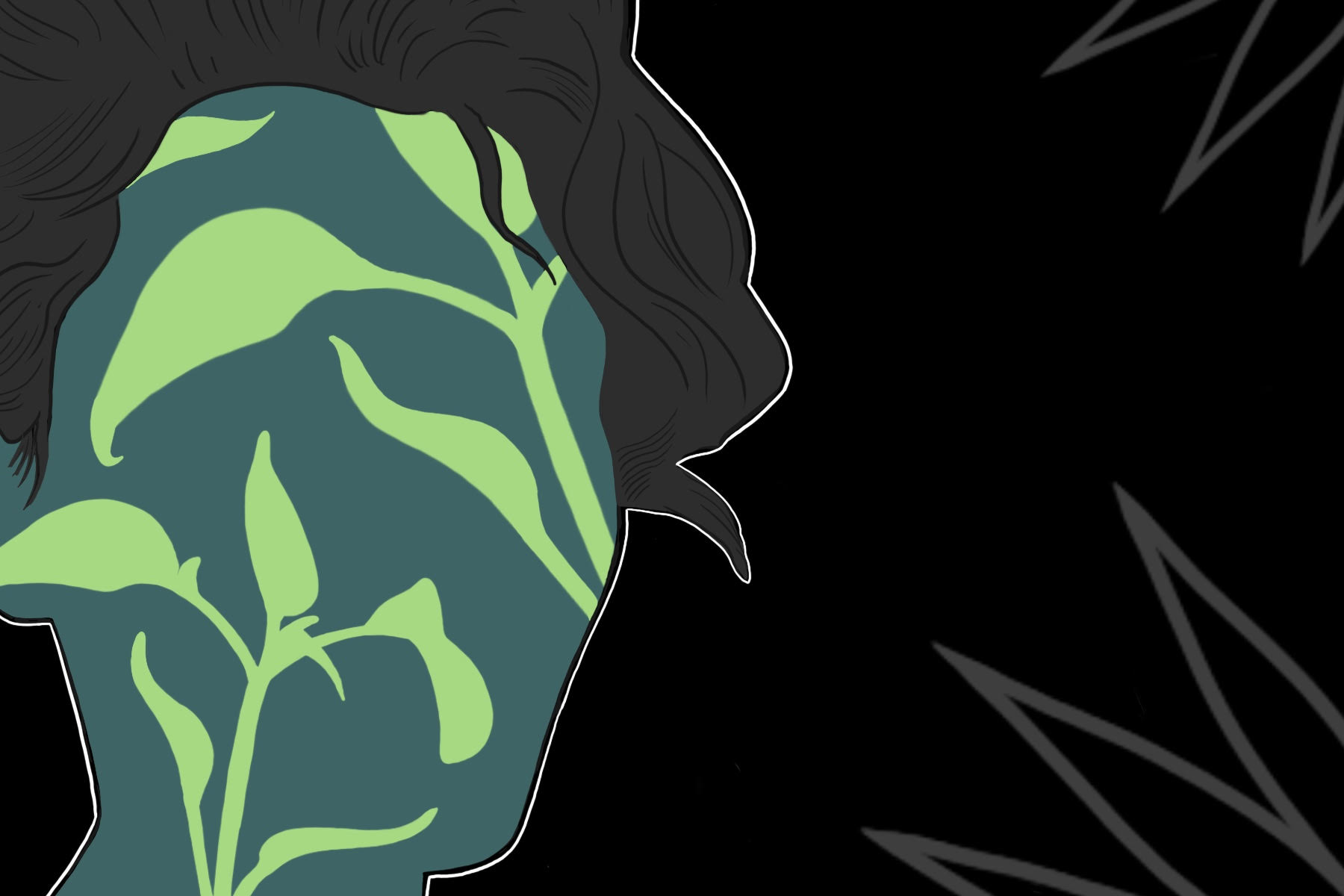She welcomes you into her white-walled living room, enveloped in a cascade of natural light; “I hate fluorescent lights,” she tells you with a shrug. Soft blankets offer a comforting mix of textures, and strategically placed mirrors give the illusion of a larger space. Everything is somehow modern yet retro, trendy yet vintage, new yet familiar. Candles dot the room, serving as both decoration and an opportunity to create ambiance via the subtle use of aroma.
You notice there is no television. She is proud of this.
A sleek bookcase gives the appearance that artfully balanced stacks of books and records are floating, and the entire room seems to emit a gentle lightness, as the closing of the front door protects this little sanctuary from the chaos of the outside world. You feel the need to break the silence.
“You have so many plants!”
https://www.instagram.com/p/B9aFFYpldvb/?utm_source=ig_web_copy_link
Beaming, she thanks you for noticing and launches into her long-awaited monologue. This aloe was her first one; she got an incredible deal on her monstera; the prayer plant died, but she’d rooted cuttings from it that survived; fiddle leaf figs are incredibly fickle plants — they’re weird about humidity; her friend, who also loves plants, swapped a ZZ plant for her satin pothos, an uneven trade, but she got the better deal.
You’re simultaneously overwhelmed and impressed by her plethora of knowledge on the subject; perhaps you make a comment about your own struggling snake plant, and she enthusiastically offers suggestions to help the poor thing (“It’s probably time to repot it.”), despite later making a remark about how easy snake plants are to take care of, forcing you to question your own level of responsibility.
She is a self-proclaimed Plant Lady, and she is proud of it. Yet, she is one of many Plant Ladies; a quick perusal of Instagram will feature some semblance of this aesthetic, and searching #plantlady results in one million variations on this very green theme.
Emerging at a time of re-evaluating what it means to be a woman, the Plant Lady is the much cooler sister of the Cat Lady, whose now-tarnished reputation is associated with lonely spinsters and heartbroken book worms. For whatever reason, being a Cat Lady became a bad thing; she became the Crazy Cat Lady.
Unlike the negative implications of the Cat Lady label, the Plant Lady is a relatively positive title; she is ecofriendly, transcendental and appreciative of nature. She is down to earth, yet has a dreamy, ethereal quality to her. She is creative yet cleanly. She doesn’t come with the mess or baggage associated with other creatives, like painters or musicians, yet her supposedly unique eye for design is an art in and of itself.
The Plant Lady is carefree, yet careful. Her pastel weekly planner is full of fun outings, carefully scheduled around her not too busy nor too lazy lifestyle. She is chill, yet at times, she has no chill. She has hobbies, but not too many to be overwhelming for her day-to-day activities. The Plant Lady is a little bit of everything, a walking contradiction. She’s effortlessly perfect.
But at their core, how different are the Cat Lady and the Plant Lady?
Whether in the form of a plant or a cat, the core of both of these personas is the act of caring for another living being. It’s as if the cries of many women’s resistance to the traditional idea of being a mother, of raising a family, of being a ’50s housewife, of being a soccer mom was heard by society but not quite understood. This resulted in the adaption of her into a pill society could more easily swallow.
Like the Victorian idea of separate spheres, the creation — or, in these days, the curation — of the “Domestic Sphere” by women forms a calming sanctuary from the outside world, a place for the soul to cleanse itself and relax. It seems that this idea has just been adapted and expanded for the modern world.
https://www.instagram.com/p/B9herftjDa2/?utm_source=ig_web_copy_link
The Plant Lady doesn’t have to be gendered; it’s true that many people, regardless of gender, curate their homes into a sanctuary and also that anyone can own plants, and many people do. Self-titled Plant Dads have created a space for themselves, and #plantdad generates 101 thousand results on Instagram.
But the label of Plant Dad doesn’t have the same notoriety that the Plant Lady has, and the numerous other labels for women indicate a bigger picture. Plant Lady. Cat Lady. Soccer Mom. Horse Girl. VSCO Girl. It’s hard to think of many labels for men that distill an entire personality, different interests and humanity down into two words (one of which simply points out the fact that the person in question is female).
The effortless perfection expected from most of these tropes is unattainable and exhausting. Think about all that is expected of the Soccer Mom: juggling multiple kids, cooking, supporting each child’s hobbies and interests, always being prepared with snacks, driving her kids around, being on time and more — all the while looking energetic and put-together. That’s a lot to handle for one person.
And the Soccer Mom doesn’t even have a great reputation; she’s known for being rude and pushy. Trying to live up to this elusive ideal of a certain kind of woman is a futile effort, and it’s one that sets people up for constant failure. No wonder Imposter Syndrome exists.
Are these boxes made for women by society, or is it a persona women willingly create and perpetuate? That’s not an easy question, and it’s one of those questions that probably isn’t an either-or; there are a myriad of factors that play into it. The fact that we have such a long history of these confining boxes indicates it’s a question we’ve been wrestling with for a while and one that doesn’t have an easy explanation.
Either way, the implications of these aesthetics and ideals can be much bigger than we realize, and they may still confine us in ways we don’t quite realize. Perpetuating the habit of stifling individuality is probably something we, as humans, will constantly be fighting against.
So, whether your house is full of plants, cats, kids, books, none of the above, or all of the above, it’s okay not to fit into a mold, and we should encourage others not to confine themselves to one idea of a person.
And if your snake plant dies, it’s not the end of the world.













